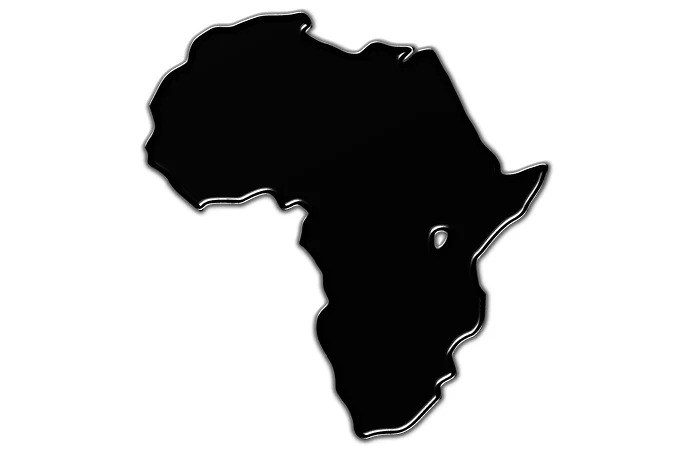What is a dark continent and why was Africa referred to as a dark continent

The most typical response to why Africa was referred to as a dark continent is because Europe had little knowledge of Africa until the 19th century. However, this response is deceptive and dishonest. For at least 2,000 years, Europeans knew a lot about Africa, but European leaders started to suppress older sources of knowledge deliberately due to great imperial inclinations.
At the same time, the anti-slavery and pro-missionary campaigns in Africa actually enhanced Europeans’ racial attitudes toward Africans in the 1800s. Because of the mysteries and cruelty they anticipated discovering in Africa, they referred to Africa as the Dark Continent.
True, Europeans understood nothing about Africa off the coast until the 19th century, but their maps were already replete with information about the continent. For over two millennia, African kingdoms have traded with Middle Eastern and Asian nations. Initially, Europeans relied on maps and descriptions generated by previous merchants and explorers, such as Ibn Battuta, a renowned Moroccan traveler who trekked over the Sahara and along Africa’s northern and eastern shores in the 1300s.
However, during the Enlightenment, Europeans established new mapping standards and methods, and since they couldn’t figure out where Africa’s lakes, mountains, and towns were, they started erasing them off popular maps. Many scientific maps still had greater information, but according to the new standards, European explorers who came to Africa – Burton, Livingston, Speke, and Stanley – are now credited (recently) with finding the mountains, rivers, and kingdoms that African peoples governed.
These explorers’ maps not only supplemented what was already known but also contributed to the concept of the Dark Continent. The term was popularized by British researcher Henry M. Stanley, who titled one of his stories “Through the Dark Continent” and the other “In the Darkest Africa” to increase sales. On the other hand, Stanley remembers reading more than 130 books on Africa before embarking on a trip.
In the minds of 19th-century Western industrialists, imperialism was universal, although there were minor variations between imperialist famines in Africa and elsewhere. Recognizing the trade and economic gains that may be acquired is an important part of empire development.
In the case of Africa, the continent was annexed as a whole for three reasons: the spirit of adventure, the desire to encourage a decent “local culture,” and the prospect of ending the slave trade. Joseph Conrad, H. Ryder Haggard, and Rudyard Kipling were among the authors who contributed to the romantic picture of a region in need of rescue by great explorers.
A distinct dichotomy was formed for these explorers: darkness vs light, and Africa versus the West. It has been said that the African environment promotes mental and physical infirmity; the trees were merciless and teeming with creatures; and crocodiles lurked in the big rivers, sailing in frightening stillness. Danger, disease, and death were all part of the unknown reality and exotic dream that the chair explorers had concocted in their heads. The literary writings of Joseph Conrad and W. Somerset Maugham portrayed the concept of a hostile nature and a disease-infected world as tinted with evil.
18th-century British black militants waged a ferocious battle against the system of slavery in England during the late 1700s. They distributed booklets highlighting the inhumanity and brutality of plantation slavery. “Am I not a man and a brother?” a black guy in chains said in one of the most iconic photographs.
However, after the British Empire abolished slavery in 1833, black campaigners in Africa redirected their efforts against the system. The British were also unhappy in the colonies when formerly enslaved people refused to continue working on the plantations for pitiful salaries. The British quickly represented African males as lazy bums or malevolent slave traffickers, rather than brothers.
Simultaneously, missionaries started journeying to Africa to spread the gospel. They anticipated their labor to be cut short for them, but when few converts in many regions remained decades later, they started to claim that African hearts are unreachable, “trapped in darkness.” According to the missionaries, these people were distinct from Westerners, cut off from the rescuing light of Christianity.
Researchers saw Africa as an erotically and psychologically potent area of darkness that could only be cleansed by applying Christianity and, of course, capitalism directly.
Africa was considered as “a primal, animal, reptile, or feminine entity that white European men tamed, educated, directed, found, and penetrated via Western science, Christianity, civilization, etc. trade and colonialism,” according to geographer Lucy Jarosch
European businessmen, bureaucrats, and adventurers were flocking to Africa in pursuit of fame and wealth during the 1870s and 1880s, and recent weapon advances had given them tremendous authority in Africa. When the Europeans misused their authority, particularly in the Congo, they blamed the Dark Continent rather than themselves. They said that Africa was the source of man’s wildness.
Many arguments have been given as to why Africa has been referred to as the “Dark Continent” throughout the years. Many people believe this is a racist statement, but they don’t know why, and the common notion that it just alludes to Europe’s ignorance of Africa makes it seem archaic, but otherwise harmless.
This misconception is based on race rather than skin tone. The concept of the Dark Continent evolved from the erasure of centuries of pre-colonial history, interaction, and travel in Africa, as well as the belief that its regions were unknown.




